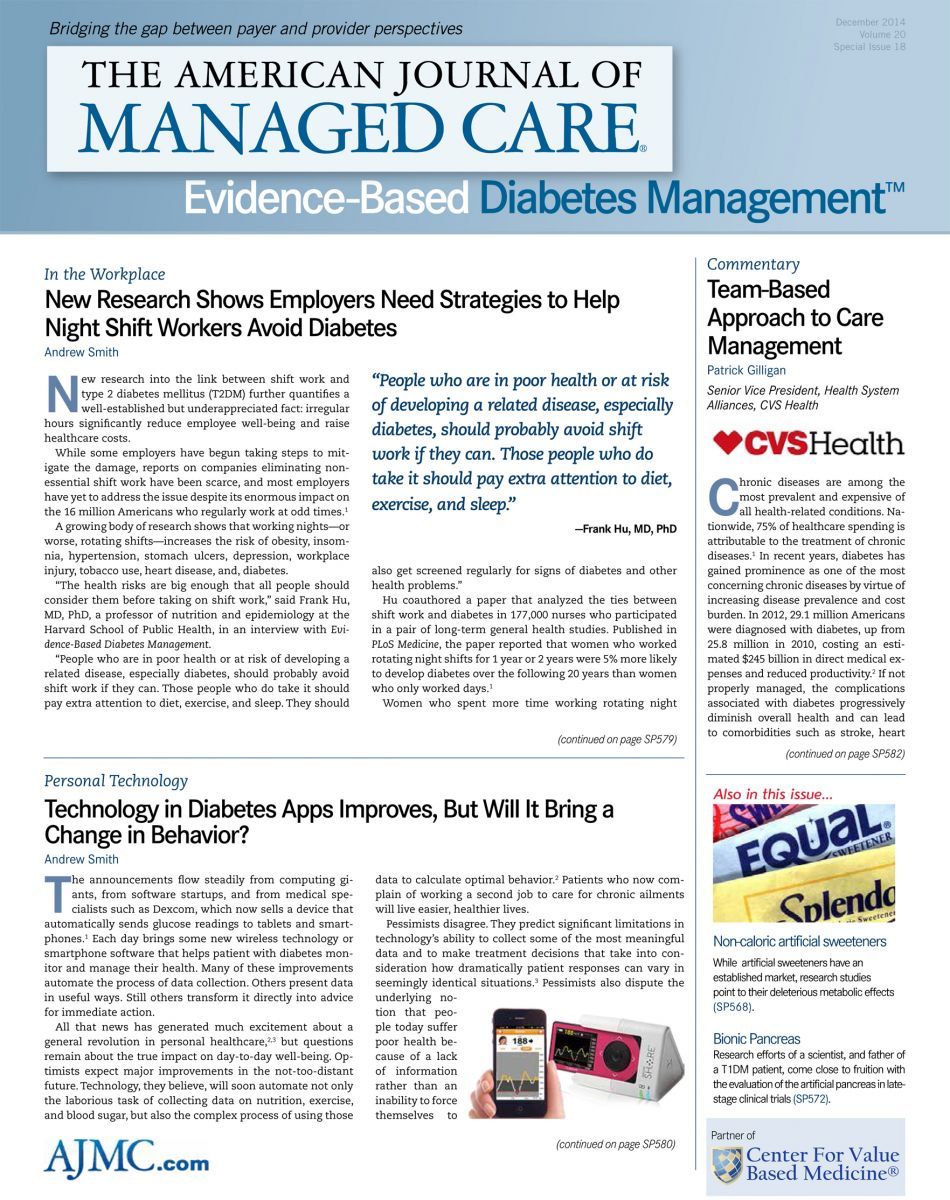- Center on Health Equity & Access
- Clinical
- Health Care Cost
- Health Care Delivery
- Insurance
- Policy
- Technology
- Value-Based Care
Patient Convenience, Value-Based Care, and Finding the Balance
We are pleased to bring you another issue of Evidence-Based Diabetes Management. Our healthcare environment continues to evolve, and in this issue we highlight a potentially revolutionizing innovation that is occurring nationally: retail clinics. Clearly, they are here to stay, based on growing consumer demand. The question is, how do we optimize this care model and ensure coordination with traditional elements of the healthcare system? Optimally, meeting patient demand for greater access and
convenience can be married with the best elements of our current healthcare system in a coordinated fashion.
This issue highlights several controversies in scientific literature. There continues to be debate on the role of artificial sweeteners and their metabolic impact, especially in diabetic patients, as was highlighted in a recent study published in the journal Nature. Examination of the biological impact of noncaloric artificial sweeteners identified
glucose intolerance—a result of an alteration in the intestinal flora. As the search for a greater understanding of the causes of type 1 diabetes mellitus (T1DM) continues, potential environmental triggers have been ardently studied based on evidence that only 50% of the risk for the development of T1DM is genetic. A variety of viruses have been implicated, and new epidemiologic work in Taiwan continues to raise the specter of enterovirus, although numerous other studies have suggested otherwise.
As we move toward a more value based healthcare system, appropriate methods to measure quality of care are critical. Accountable care organizations (ACOs), as
envisioned by CMS, have outlined some diabetes measures, while at the same time the National Quality Forum and others find a compendium of diabetes quality measures. The historic challenge in defining these measures is the movement toward more individualized care goals for patients with diabetes.
What remains frustrating for many clinicians is balancing individualized goals, as recommended by the American Diabetes Association and others, with the need for population management and metrics to drive ACO goals. The hope is that with more robust data, one can incorporate other factors (ie, diabetes comorbidities) to develop more sophisticated measures of clinical quality that resonate with evidence-based care and clinical judgment.
EBDM
Robert Gabbay, MD, PhD, editor-in-chief of Evidence-Based Diabetes Management, is chief medical officer and senior vice president of Joslin Diabetes Center.

Building Trust: Public Priorities for Health Care AI Labeling
January 27th 2026A Michigan-based deliberative study found strong public support for patient-informed artificial intelligence (AI) labeling in health care, emphasizing transparency, privacy, equity, and safety to build trust.
Read More
Blister Packs May Help Solve Medication Adherence Challenges and Lower Health Care Costs
June 10th 2025Julia Lucaci, PharmD, MS, of Becton, Dickinson and Company, discusses the benefits of blister packaging for chronic medications, advocating for payer incentives to boost medication adherence and improve health outcomes.
Listen
Motivating and Enabling Factors Supporting Targeted Improvements to Hospital-SNF Transitions
January 26th 2026Skilled nursing facilities (SNFs) with a high volume of referred patients with Alzheimer disease and related dementias may work harder to manage care transitions with less availability of resources that enable high-quality handoffs.
Read More
